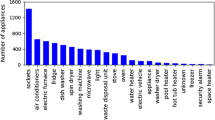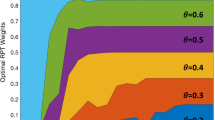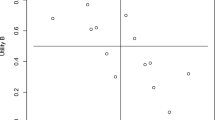Abstract
We consider a cost sharing system where users are selfish and act according to their own interest. There is a set of facilities and each facility provides services to a subset of the users. Each user is interested in purchasing a service, and will buy it from the facility offering it at the lowest cost. The overall system performance is defined to be the total cost of the facilities chosen by the users. A central authority can encourage the purchase of services by offering subsidies that reduce their price, in order to improve the system performance. The subsidies are financed by taxes collected from the users.
Specifically, we investigate a non-cooperative game, where users join the system, and act according to their best response. We model the system as an instance of a set cover game, where each element is interested in selecting a cover minimizing its payment. The subsidies are updated dynamically, following the selfish moves of the elements and the taxes collected due to their payments. Our objective is to design a dynamic subsidy mechanism that improves on the overall system performance while collecting as taxes only a small fraction of the sum of the payments of the users. The performance of such a subsidy mechanism is thus defined by two different quality parameters: (i) the price of anarchy, defined as the ratio between the cost of the Nash equilibrium obtained and the cost of an optimal solution; and (ii) the taxation ratio, defined as the fraction of payments collected as taxes from the users.
We investigate two different models: (i) an integral model in which each element is covered by a single set; and (ii) a fractional model in which an element can be fractionally covered by several sets. Let f denote the maximum number of sets that an element can belong to. For the fractional model, we provide a subsidy mechanism such that, for any ε≤1, the price of anarchy is \(O(\frac{\log f}{\epsilon})\) and the taxation ratio is ε. For the integral model, we provide a subsidy mechanism such that, for any ε≤1, the price of anarchy is \(O(\frac{\log f\log (\frac{n}{\epsilon})}{\epsilon})\) and the taxation ratio is ε, where n is the number of elements.
Similar content being viewed by others
References
Alon, N., Awerbuch, B., Azar, Y., Buchbinder, N., Naor, J.: The online set cover problem. In: Proc. of the 35th Annual ACM Symposium on the Theory of Computation, pp. 100–105 (2003)
Alon, N., Awerbuch, B., Azar, Y., Buchbinder, N., Naor, J.: A general approach to online network optimization problems. ACM Trans. Algorithms 2, 640–660 (2006)
Anshelevich, E., Dasgupta, A., Kleinberg, J., Tardos, É., Wexler, T., Roughgarden, T.: The price of stability for network design with fair cost allocation. In: Proc. of the 45th Annual IEEE Symposium on Foundations of Computer Science, pp. 295–304 (2004)
Buchbinder, N., Naor, J.: Online primal-dual algorithms for covering and packing problems. In: Proc. of the 13th Annual European Symposium on Algorithms, pp. 689–701 (2005)
Caragiannis, I., Kaklamanis, C., Kanellopoulos, P.: Taxes for linear atomic congestion games. In: Proc. of the 14th Conference on Annual European Symposium, pp. 184–195 (2006)
Charikar, M., Karloff, H., Mathieu, C., Saks, M., Naor, J.: Online multicast with egalitarian cost sharing, In: Proc. of the Twentieth Annual Symposium on Parallelism in Algorithms and Architectures, pp. 70–76 (2008)
Chekuri, C., Chuzhoy, J., Lewin-Eytan, L., Naor, J., Orda, A.: Non-cooperative multicast and facility location games. IEEE J. Sel. Areas Commun. 25, 1193–1206 (2007) (Special Issue on Non-Cooperative Behavior in Networking)
Christodoulou, G., Koutsoupias, E., Nanavati, A.: Coordination mechanisms. In: Proc. of the 31st Inter. Colloq. on Automata, Languages and Programming, pp. 345–357 (2004)
Chrobak, M., Koutsoupias, E.: Coordination mechanisms for congestion games. ACM SIGACT News 35(4), 58–71 (2004)
Cole, R., Dodis, Y., Roughgarden, T.: How much can taxes help selfish routing? In: Proc. of the 4th ACM Conference on Electronic Commerce, pp. 98–107 (2003)
Fleischer, L.K., Jain, K., Mahdian M.: Tolls for heterogeneous selfish users in multicommodity networks and generalized congestion games. In: Proc. of the 45th Annual Symposium of the Foundations of Computer Science, pp. 277–285 (2004)
Korilis, Y.A., Lazar, A.A., Orda, A.: Achieving network optima using Stackelberg routing strategies. IEEE/ACM Trans. Netw. 5(1), 161–173 (1997)
Immorlica, N., Li, L., Mirrokni, V., Schulz, A.: Coordination mechanisms for selfish scheduling. In: Proc. of the 1st Inter. Workshop on Internet and Network Economics, pp. 55–69 (2005)
Nisan, N., Ronen, A.: Algorithmic mechanism design. In: Proc. of the 31th Annual ACM Symp. on the Theory of Computation—STOC’99, pp. 129–140 (1999)
Rosenthal, R.W.: A class of games possessing pure strategy Nash equilibria. Int. J. Game Theory 2, 65–67 (1973)
Roughgarden, T.: Stackelberg scheduling strategies. In: Proc. of the 33rd Annual ACM Symp. on the Theory of Computation—STOC’01, pp. 104–113 (2001)
Swamy, C.: The effectiveness of Stackelberg strategies and tolls for network congestion games. In: Proc. of the 18th Annual ACM-SIAM Symp. on Discrete Algorithms, pp. 1133–1142 (2007)
Author information
Authors and Affiliations
Corresponding author
Additional information
A preliminary version of this paper appeared in the Proceedings of the First International Symposium on Algorithmic Game Theory (SAGT ’08).
Research of J. (Seffi) Naor supported in part by ISF Grant 1366/07 and US-Israel BSF Grant 2002276.
Rights and permissions
About this article
Cite this article
Buchbinder, N., Lewin-Eytan, L., (Seffi) Naor, J. et al. Non-Cooperative Cost Sharing Games via Subsidies. Theory Comput Syst 47, 15–37 (2010). https://doi.org/10.1007/s00224-009-9197-3
Received:
Accepted:
Published:
Issue Date:
DOI: https://doi.org/10.1007/s00224-009-9197-3




